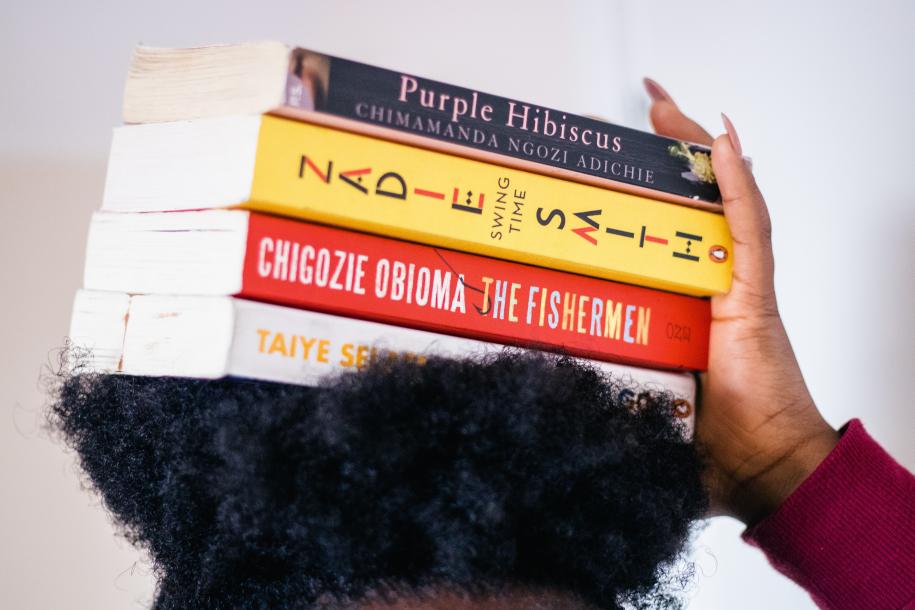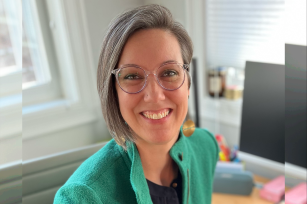
Breadcrumb
- Essential Partners
- Our Impact
- News and Notes
- Kellogg School Faculty Says Fiction & Dialogue Develop Perspective, Empathy, and Critical Thinking
Kellogg School Faculty Says Fiction & Dialogue Develop Perspective, Empathy, and Critical Thinking

“The Dialogic Classroom is by far and away the most skillful and thoughtful professional development I have had in years as an educator.”
Dr. Brooke Vuckovic, Clinical Professor of Leadership
Kellogg School of Management
In a recent Harvard Business Review article, Want to be a Leader? Read More Fiction Professor Brooke Vuckovic asks: where do you turn when you’re facing a complex moral dilemma? As a Clinical Professor of Leadership at the Kellogg School of Management, Vuckovic has a somewhat surprising suggestion: read some fiction.
In her words, “fiction can serve as a guide for everything from voicing a nuanced position on a moral issue to dealing with quandaries related to greed, self-deceit, or likability.” A good book invites us to step into another world and try to understand a character’s intellect and emotions, as they grapple with how to live out their values and make decisions. Fiction supports perspective taking, empathy, and critical thinking, especially when it’s paired with inquiry and structured discussion—such as dialogue.
Fiction can also inspire curiosity, connection, self-reflection, and creativity. Throughout her teaching career, Vuckovic has seen how fiction can “help you connect with others across distance and difference; correct your path when it might involve moral inertia and help shape your route through uncharted territory; and expand your moral imagination and ability to effectively manage nuanced moral issues at work.”
Vuckovic, winner of Kellogg’s most prestigious teaching award, the L.G. Lavengood Professor of the Year, brings a variety of skills and tools to her classroom. As an alum of Essential Partner’s Dialogic Classroom workshop in 2020, she has stayed connected to our work over the last few years through our Community of Practice, taking advantage of office hours and follow-up consultations, as she honed the student engagement practices in her course, Moral Complexity in Leadership.
In that course, Vuckovic relies on fiction as a central tool for discussing thorny leadership challenges that require students to dig deep in discussions on their moral decision making. But, as all educators know, good content doesn’t guarantee good student engagement with the text or with each other. For that, she deploys key tools from EP’s Dialogic Classroom.
One tool that Vuckovic immediately integrated into each class session was a “weekly warm up” making use of a stimulus (quote, piece of art, poem) and a connecting question. This practice is an essential component of building a sense of connection and belonging in the classroom, as well as a resilient foundation for challenging discussions of complex issues.
“The Dialogic Classroom is by far and away the most skillful and thoughtful professional development I have had in years as an educator. Even if you’re not looking to implement a full reflective structured dialog in the classroom, EP’s approach to learning, facilitation and building conversation across differences is unmatched. And their name is apt—they truly become essential partners with their community of practice offerings. Office hours and follow on sessions have allowed me to test new ideas and address fresh challenges with other educators as we work to create productive learning laboratories for diverse thinkers.”
